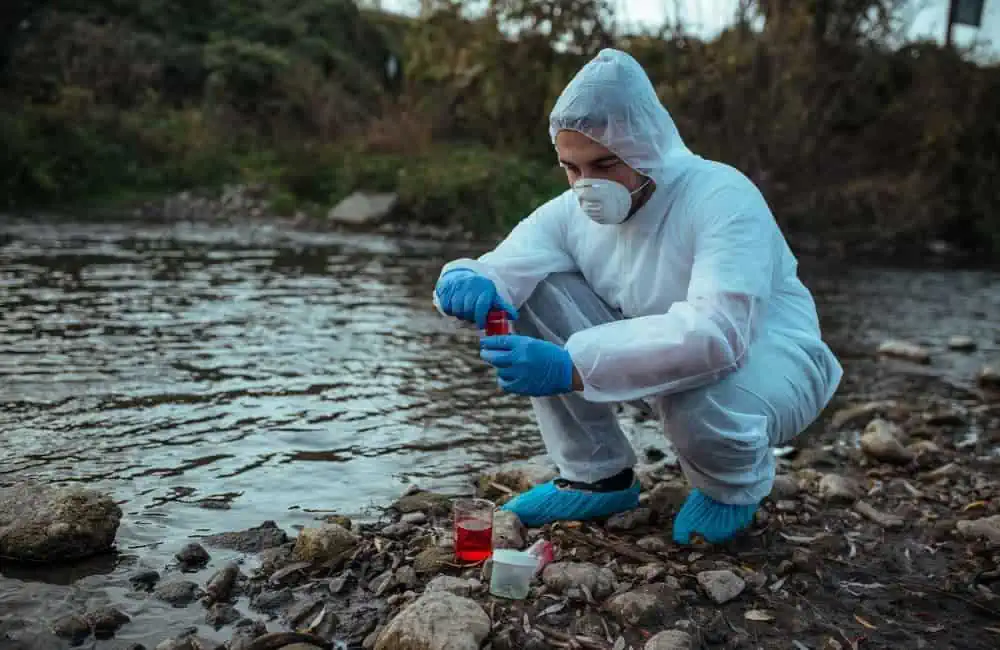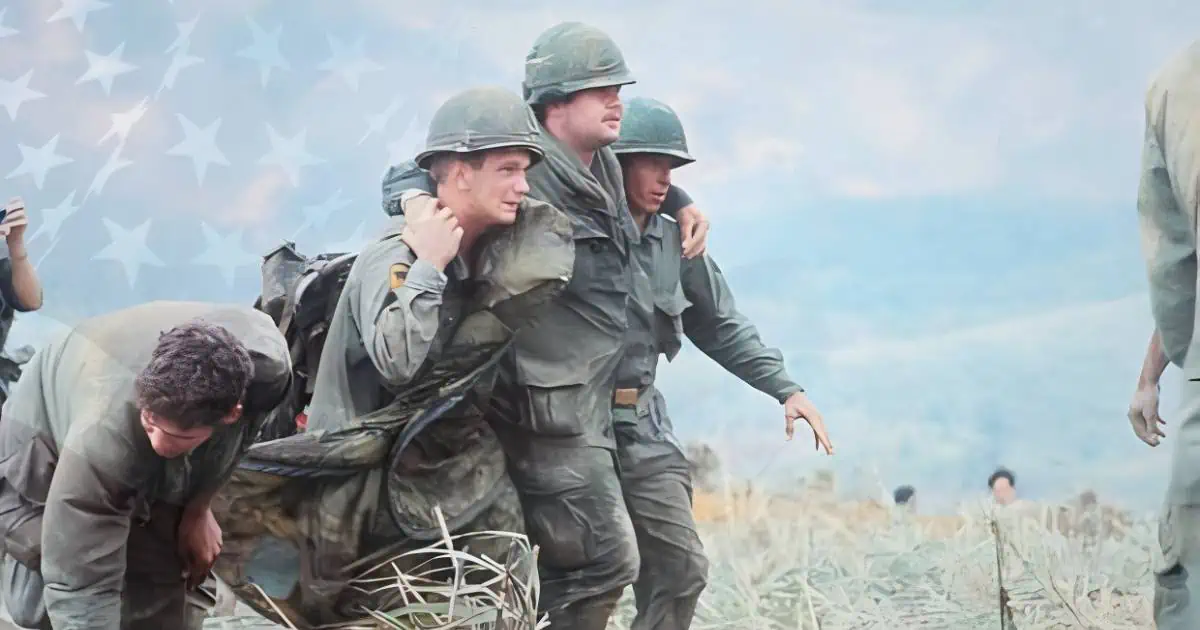Substantiating Claims and The Camp Lejeune Litigation Process
- Last Updated: October 17th, 2024

Attorney Jessie Paluch, founder of TruLaw, has over 25 years of experience as a personal injury and mass tort attorney, and previously worked as an international tax attorney at Deloitte. Jessie collaborates with attorneys nationwide — enabling her to share reliable, up-to-date legal information with our readers.
Legally Reviewed
This article has been written and reviewed for legal accuracy and clarity by the team of writers and legal experts at TruLaw and is as accurate as possible. This content should not be taken as legal advice from an attorney. If you would like to learn more about our owner and experienced injury lawyer, Jessie Paluch, you can do so here.
Fact-Checked
TruLaw does everything possible to make sure the information in this article is up to date and accurate. If you need specific legal advice about your case, contact us by using the chat on the bottom of this page. This article should not be taken as advice from an attorney.
Substantiating Claims and The Camp Lejeune Litigation Process
On this page, we’ll discuss substantiating claims and the Camp Lejeune Litigation process, how a lawyer can help, who is eligible to file a claim, and much more.
Initial Claim Denials
If a preliminary claim for injuries or diagnoses related to Camp Lejeune Water Contamination is denied by the Judge Advocate General (JAG) of the Navy’s Tort Claims Unit (TCU), the claim will need to be substantiated.
Substantiating a claim may turn out to be very difficult for a person to do on their own without legal representation.

The process involves proving what is on the original claim, backed up by medical records, employment records, military records, and any other relevant documentation that can give credence to the claim.
In this blog, we will discuss what goes into substantiating denied or appealed claims and the judicial process for Camp Lejeune Water Contamination claims.
Table of Contents
Substantiating Claims with the Help of a Lawyer
While this entire process can be completed without the help of a lawyer (pro se), a lawyer will make it much easier to collect relevant information and documents and will simplify the filing process.
The Navy JAG is unable to answer legal questions and will not pay out compensation amounts higher than requested on the claim form.
An experienced attorney will be able to answer any legal questions a claimant may have about the Camp Lejeune filing process and will be able to move your claim to court if any early offers for settlement are not sufficient.
TruLaw is prepared to both file CLJA claim forms and also help claimants secure documents for substantiation and litigation purposes.
The information we collect from legal clients can be automatically inputted into the claim form, and our attorneys will follow-up with clients for supporting documents and evidence if needed.
TruLaw is utilizing the SimplyConvert client portal which provides a safe and secure platform for claimants to submit documents, authorizations, photos, and more.
We understand the sensitive nature of our clients’ information and medical issues, and we strive to provide the confidentiality and support they need in these difficult situations.
What Documentation is Required?
To substantiate a CLJA claim form, a number of documents may be required.
These documents include information relevant to the claimant’s diagnosis, military service, employment, life after the military, and more.
Within the Camp Lejeune Claims Packet are pages on substantiating information/documents and a lengthy questionnaire.
The substantiating information form requests documentation and information on the following:
- Military employment records (DD214)
- Location of the claimant’s home at Camp Lejeune and period of time they/their family lived there.
- Location(s) of the claimant’s work at Camp Lejeune, nature of their duties, identity of their employers, and specific period(s) of time they worked there.
- A copy of the claimant’s outpatient records, the cumulative record of all care provided by military treatment facilities (MTF). These records should be maintained by the MTF at which the claimant last received medical care. If it has been three or more years since care was received at the MTF, the records will be archived. Records can be requested from the following source:
- National Personnel Records Center9700 Page BoulevardSt. Louis, MO 93132
- A copy of all inpatient medical records. If a claimant was admitted to a military hospital, they will need to provide the name of the facility, location, and date when medical care was received.
- A copy of all civilian medical records relating to medical care the claimant received, both inpatient and outpatient.
- Itemized bills for all medical and hospital expenses incurred or itemized receipts of payment for such expenses.
- Any medical opinions stating a connection between each of the claimant’s medical problems and exposure to specific chemicals. The opinion should also set forth the nature and extent of the claimant’s injury, cause of injury, nature and extent of treatment, any degree of temporary or permanent disability, prognosis, period of hospitalization, and any diminished earning capacity.
- A statement of expected expenses for any necessary future treatment.
- Any other evidence that may have a bearing on either the responsibility of the United States for the claimant’s illness or damages claimed.
The questionnaire asks 35 questions pertaining to the claimant’s overall history of exposure and how their diagnoses or injuries are related to toxic exposure at Camp Lejeune, as well as a reiteration of the information provided in the initial CLJA claim form.
The Litigation Process for Camp Lejeune Contamination Claims
If a claim is outright denied or if an appeal is denied, a lawsuit can be filed in the U.S. District Court: Eastern District of North Carolina.
Lawsuits for Camp Lejeune water contamination are expected to be handled much like a multidistrict litigation (MDL) filed against a company.
MDLs are consolidations of lawsuits with similar injuries and causation, filed in a singular U.S. District Court for speed and fairness of decisions and settlement amounts.
The judicial process for mass amounts of Camp Lejeune lawsuits is not yet entirely known.
More information on how lawsuits will be consolidated and handled in the Eastern District of North Carolina will be available soon.
Visit this Webpage for Updates on the Camp Lejeune Contamination Litigation Process
It is still very early in the filing process for Camp Lejeune Water Contamination claims and lawsuits.
More information will soon be available in regards to how claims will be handled, the appeals process, what to do if a claim was denied, how lawsuits will be filed and handled, and more.
Our network of attorneys is affiliated with the leaders of the litigation, Bell Legal Group.
SimplyConvert is continuously adapting to the requirements of the CLJA claim form, appeals process, and the subsequent litigation process.

Experienced Attorney & Legal SaaS CEO
With over 25 years of legal experience, Jessie is an Illinois lawyer, a CPA, and a mother of three. She spent the first decade of her career working as an international tax attorney at Deloitte.
In 2009, Jessie co-founded her own law firm with her husband – which has scaled to over 30 employees since its conception.
In 2016, Jessie founded TruLaw, which allows her to collaborate with attorneys and legal experts across the United States on a daily basis. This hypervaluable network of experts is what enables her to share reliable legal information with her readers!
You can learn more about the Camp Lejeune Water Contamination Lawsuit by visiting any of our pages listed below:
Here, at TruLaw, we’re committed to helping victims get the justice they deserve.
Alongside our partner law firms, we have successfully collected over $3 Billion in verdicts and settlements on behalf of injured individuals.
Would you like our help?
At TruLaw, we fiercely combat corporations that endanger individuals’ well-being. If you’ve suffered injuries and believe these well-funded entities should be held accountable, we’re here for you.
With TruLaw, you gain access to successful and seasoned lawyers who maximize your chances of success. Our lawyers invest in you—they do not receive a dime until your lawsuit reaches a successful resolution!
Do you believe you’re entitled to compensation?
Use our Instant Case Evaluator to find out in as little as 60 seconds!
AFFF Lawsuit claims are being filed against manufacturers of aqueous film-forming foam (AFFF), commonly used in firefighting.
Claims allege that companies such as 3M, DuPont, and Tyco Fire Products failed to adequately warn users about the potential dangers of AFFF exposure — including increased risks of various cancers and diseases.
Suboxone Tooth Decay Lawsuit claims are being filed against Indivior, the manufacturer of Suboxone, a medication used to treat opioid addiction.
Claims allege that Indivior failed to adequately warn users about the potential dangers of severe tooth decay and dental injuries associated with Suboxone’s sublingual film version.
Social Media Harm Lawsuits are being filed against social media companies for allegedly causing mental health issues in children and teens.
Claims allege that companies like Meta, Google, ByteDance, and Snap designed addictive platforms that led to anxiety, depression, and other mental health issues without adequately warning users or parents.
Transvaginal Mesh Lawsuits are being filed against manufacturers of transvaginal mesh products used to treat pelvic organ prolapse (POP) and stress urinary incontinence (SUI).
Claims allege that companies like Ethicon, C.R. Bard, and Boston Scientific failed to adequately warn about potential dangers — including erosion, pain, and infection.
Bair Hugger Warming Blanket Lawsuits involve claims against 3M — alleging their surgical warming blankets caused severe infections and complications (particularly in hip and knee replacement surgeries).
Plaintiffs claim 3M failed to warn about potential risks — despite knowing about increased risk of deep joint infections since 2011.
Baby Formula NEC Lawsuit claims are being filed against manufacturers of cow’s milk-based baby formula products.
Claims allege that companies like Abbott Laboratories (Similac) and Mead Johnson & Company (Enfamil) failed to warn about the increased risk of necrotizing enterocolitis (NEC) in premature infants.
Here, at TruLaw, we’re committed to helping victims get the justice they deserve.
Alongside our partner law firms, we have successfully collected over $3 Billion in verdicts and settlements on behalf of injured individuals.
Would you like our help?


